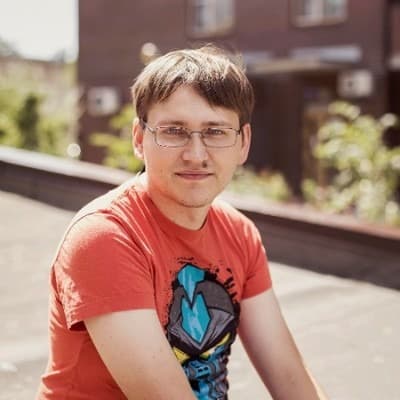
Pavel Durov
Pavel Durov: Founder of Telegram and VK, Initiator of TON
Pavel Durov (born 1984) is a Russian-born technology entrepreneur renowned globally as the founder and CEO of the encrypted messaging application Telegram. Before Telegram, he created Russia's largest social network, VKontakte (VK). Durov also initiated the ambitious The Open Network (TON) blockchain project, which, despite early setbacks, has seen renewed integration with Telegram. He is a prominent and often controversial advocate for digital privacy, free speech, and Decentralization, stances that have frequently brought him into conflict with government authorities worldwide.
Early Life, Education, and VKontakte (VK)
Born in Leningrad (now Saint Petersburg), Russia, Pavel Durov graduated from Saint Petersburg State University in 2006 with a degree in Philology. His older brother, Nikolai Durov, a highly accomplished mathematician and programmer, played a crucial technical role alongside Pavel in both the VK and Telegram ventures.
In 2006, Pavel founded VKontakte (VK), often described as Russia's equivalent to Facebook. The platform achieved massive popularity in Russia and other Russian-speaking countries. However, Durov's tenure as CEO became increasingly marked by conflict with Russian authorities. He famously resisted demands in 2011-2014 to censor opposition groups and hand over user data related to political protests, including those in Ukraine. This resistance ultimately led to his ousting from VK in April 2014, after which he left Russia, citing the impossibility of running an internet business freely in the country.

Telegram: A Global Messaging Platform Focused on Privacy (2013-Present)
Anticipating the pressures he faced at VK, Durov, again with key technical contributions from his brother Nikolai (who designed the core MTProto encryption protocol), founded Telegram in 2013. The platform was built with a core mission of providing secure, private, and censorship-resistant communication.
- Key Features & Growth: Telegram rapidly gained global popularity, attracting hundreds of millions (reportedly over 1 billion monthly active users by 2025) drawn to its strong encryption (including end-to-end encrypted Secret Chats), large group and channel capabilities, minimal data collection policies, and perceived resistance to government interference.
- Government Conflicts: Telegram's commitment to privacy has led to numerous clashes with governments seeking access to user data or demanding content removal. Most notably, Russia attempted a multi-year block of Telegram starting in 2018 after the company refused to provide encryption keys to security services; Telegram employed various technical measures to largely circumvent the ban, which was eventually lifted in 2020.

The Open Network (TON) Blockchain Saga
In 2018, Telegram embarked on an ambitious project to create its own Blockchain platform, initially called the Telegram Open Network (TON), designed for high speed and scalability, with plans for deep integration into the messaging app.
- Gram ICO & SEC Lawsuit: The project raised approximately $1.7 billion from private investors in an Initial Coin Offering (ICO) for its planned native cryptocurrency, "Gram." However, in 2019, the U.S. Securities and Exchange Commission (SEC) sued Telegram, alleging the Gram sale was an unregistered securities offering.
- Telegram Withdraws (2020): Following legal setbacks, Pavel Durov announced in May 2020 that Telegram was officially abandoning the TON project and would return remaining funds to investors. He explicitly distanced Telegram from any future projects that might use the TON name or technology.
"While networks based on the technology we built for TON may appear, we won't have any affiliation with them and are unlikely to ever support them in any way," Durov wrote in 2020.
- Community Revival & Telegram Re-engagement: Despite Telegram's official withdrawal, the TON blockchain's open-source code was utilized by independent developers and community members who launched what is now known as The Open Network (maintaining the TON acronym), with its native cryptocurrency, Toncoin. Significantly, starting around 2023-2024, Telegram reversed its earlier stance and began actively integrating and supporting the community-led TON network. This includes integrating TON-based crypto wallets within Telegram, enabling Toncoin for advertising revenue sharing and username purchases, and designating TON as the exclusive blockchain infrastructure for its expanding Mini Apps platform (effective early 2025).
Advocacy, Philosophy, and Lifestyle
Pavel Durov consistently advocates for internet freedom, digital privacy, and decentralization through public posts and interviews. He often critiques the data collection practices of large tech companies and emphasizes the importance of secure communication tools in resisting censorship and surveillance. He is also known for promoting a minimalist lifestyle, stating that he prioritizes freedom and creativity over material possessions. He has engaged in philanthropy, including donating Bitcoin for COVID-19 relief.
Controversies and Ongoing Legal Issues
Durov and Telegram continue to face challenges and criticisms:
- Platform Use for Illicit Activities: Due to its encrypted nature and content policies, Telegram is often criticized for being a platform where illegal activities (ranging from scams and illicit trade to extremist communication) can proliferate, posing significant content moderation challenges.
- French Arrest and Investigation (August 2024 - Present): In August 2024, Durov was detained by French authorities upon arriving at Le Bourget airport near Paris. He was subsequently indicted on multiple charges related primarily to alleged complicity in crimes committed via Telegram on French soil, stemming from claims of insufficient cooperation with judicial requests and inadequate platform moderation. After several days in custody, Durov was released under judicial supervision, required to post €5 million bail, and initially restricted from leaving France. As of March 2025, reports indicated he had been granted temporary permission by an investigating judge to leave France while the complex legal investigation continues. This situation underscores the ongoing global tensions between encrypted communication platforms and law enforcement agencies.

Conclusion: Privacy Advocate Navigating Global Pressure
Pavel Durov is a defining figure of the modern internet era, having founded both Russia's dominant social network (VK) and the globally popular secure messaging app, Telegram. His career has been characterized by a staunch commitment to user privacy and freedom of expression, principles that fueled Telegram's massive growth but also placed him in direct opposition to government censorship and surveillance efforts worldwide, most recently leading to significant legal challenges in France. His initiation of the TON blockchain project, despite Telegram's forced withdrawal due to SEC action, laid groundwork that the community revived, and Telegram itself is now strategically embracing. Durov remains a highly influential, complex, and often controversial advocate for a decentralized digital future, operating at the critical intersection of technology, privacy rights, and state power.

